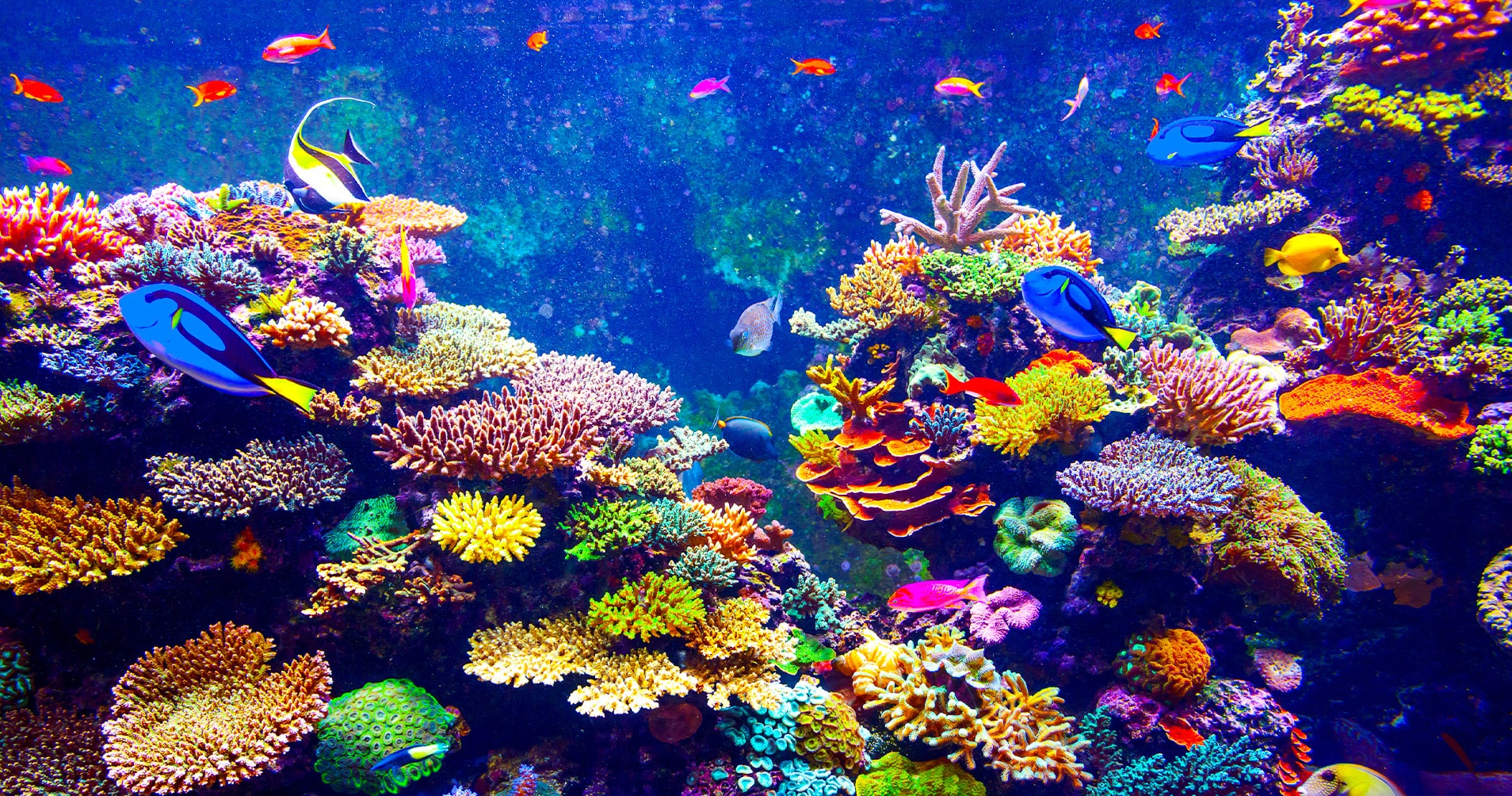Hyundai Motorstudio Senayan Park
Hyundai Motorstudio Senayan Park
Newsroom
The official news from Hyundai Motorstudio Senayan Park and a collection of innovative articles on mobility and sustainability here.
-
Protect Coral Reefs, the Vulnerable Undersea Jewels
- Hyundai Motorstudio Senayan Park Senayan Park 2024.05.20
-
Understanding why we need to preserve coral reefs is one of the important things to pay attention to. Coral reefs build complex and life-rich ecosystems formed by a variety of marine biota.
But unfortunately, these underwater gems face various dangers that threaten their preservation. Understand more about the threats facing coral reefs and how to take steps to protect them below.
The Functions of the Coral Reefs
There are many reasons why we need to preserve coral reefs. Here are some of the main functions of coral reefs:.
1. Habitat for Marine Biota
Coral reefs are home to around 25% of marine fish species and play a role in maintaining overall ocean health. Coral reefs help absorb carbon dioxide and contribute to oxygen production. Damage to coral reefs will have an impact on the marine food chain, climate stability, and the health of Earth.
2. Coast Guard
Coral reefs are the natural fortresses that protect coastlines from erosion due to waves and ocean currents. Damage to coral reefs makes beaches more vulnerable to abrasion, which has the potential to damage infrastructure and residential areas in coastal areas.
3. Potential Medicine Source
Coral reefs can produce various chemical compounds with the potential to treat various diseases. Research on coral reefs could produce new medicines that are beneficial to human health.
4. Economic Support
The existence of coral reefs also plays an important role in supporting the economy, such as in the fishery, tourism, and mariculture sectors. Healthy coral reefs support the growth of quality fish for consumption and sale. Apart from that, the beauty of coral reefs is also a major attraction for marine tourism..
Dangers Facing Coral Reefs
The following are some of the dangers that coral reefs face and that threaten their sustainability.
1. Global Warming and Climate Change
The global warming phenomenon threatens various habitats on Earth, including coral reefs. Climate change increases the seawater temperatures and causes coral bleaching phenomenon. Bleaching causes coral to lose its color and nutrients, which makes it susceptible to disease over time and eventually die.
2. Marine Pollution
Irresponsible management of waste and chemicals that pollute the sea has a very high potential for damaging coral reefs. Plastic waste that accumulates in the sea also poses a major danger to coral reefs. Plastic waste can suffocate corals while creating space for harmful organisms to grow and disrupt the food chain.
3. Overfishing
Another thing that also poses a threat to the survival of coral reefs is excessive fishing practices. This practice can reduce the population of herbivorous fish. Uncontrolled fishing also disrupts the balance of the food chain and can damage the structure of coral reefs.
4. Destructive Human Activities
Various human activities carried out without considering the environment are one of the factors that cause physical damage to coral reefs. Some of these are coral mining, coastal development, and irresponsible tourism.
Careless snorkeling or diving activities can also be a factor in causing damage to coral reefs. Ships that hit coral reefs and anchors used carelessly without minding the ecosystem also contribute to damaging coral reefs.
5. Coral Disease
Coral reefs also face dangers from diseases caused by bacteria, viruses, or parasites. The spread of disease can occur quickly on coral reefs that are stressed by environmental change factors, such as pollution and global warming.
How to Protect Coral Reefs
After understanding why we need to preserve coral reefs, the next step is taking action to protect them. Here are several ways that we can implement to protect coral reefs.
Reduce Plastic Use
Plastic poses a big threat to the environment, including coral reefs. For this reason, we can reduce the use of single-use plastic and choose environmentally friendly alternatives. For example, using refillable drinking bottles, cloth shopping bags, bamboo straws, reusable food containers, and so on.
Manage Waste Well
The next effort we can make is to manage waste and rubbish well. Avoid using dangerous chemicals that can pollute the sea and damage coral reefs. We can also implement recycling to manage waste better and minimize environmental pollution.
Travel Responsibly
When traveling to the sea and coral reefs, make sure to always be responsible. Enjoying the beauty of coral reefs is allowed, but be sure to follow the specified rules. Do not touch, pick up, or stand on coral reefs.
For this reason, make sure to maintain a safe distance and avoid stepping on coral. Also, use safe tools and do not have the potential to damage coral reefs when snorkeling or diving.
Adopt an Energy-saving Lifestyle
Global warming is one of the main threats to coral reefs, which we can reduce by adopting an energy-saving lifestyle. Saving energy means reducing energy consumption, which can help reduce greenhouse gas emissions and their impact on global warming.
There are many things we can do to adopt this lifestyle, such as turning off electronic equipment that is not in use and switching to energy-saving equipment. Also, use more environmentally friendly transportation to minimize pollution and reduce global warming.
These are some of the reasons why we need to preserve coral reefs and ways to protect them. Let's continue to make efforts to preserve the environment so we can pass down the healthy Earth for future generations.




